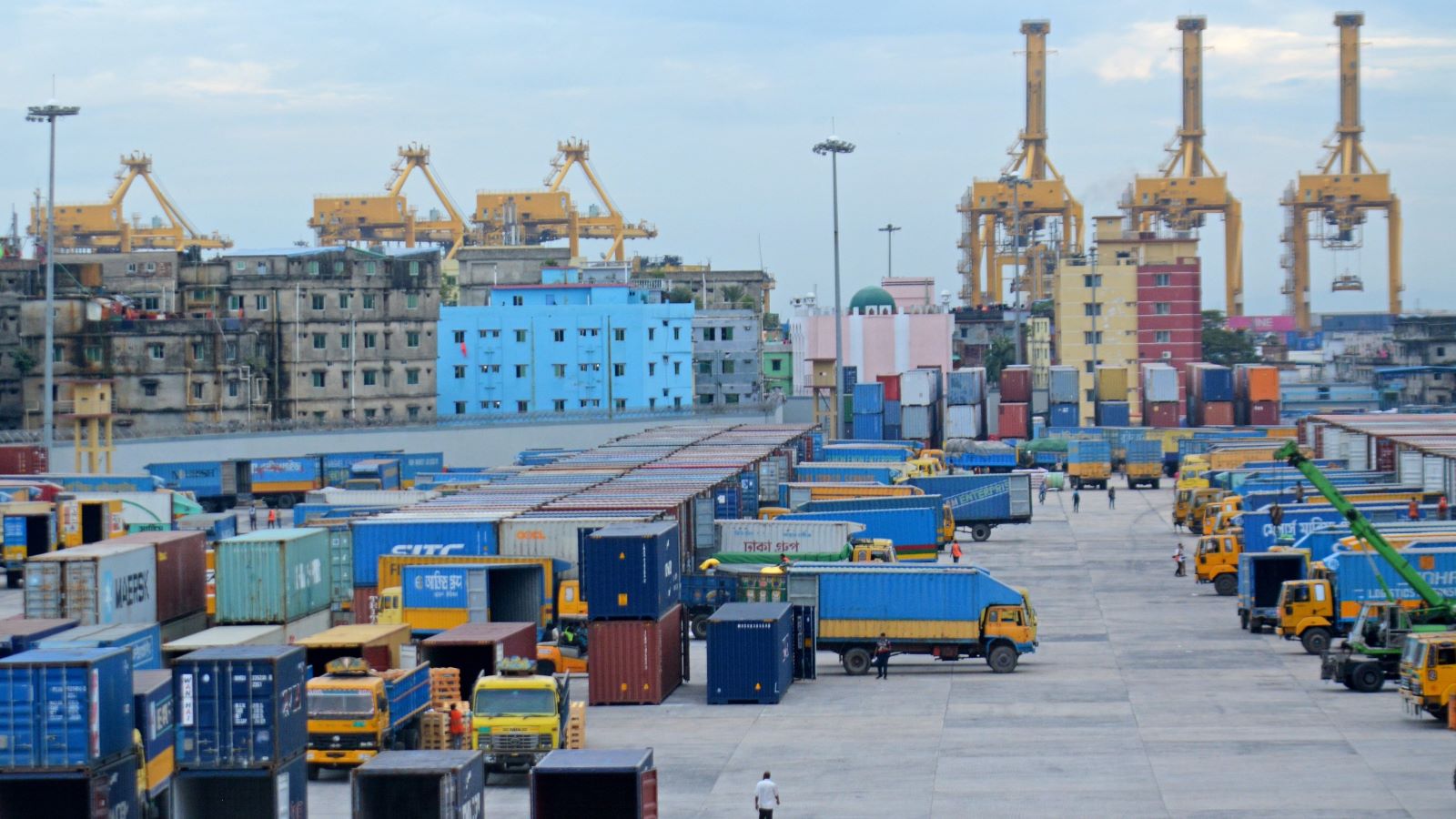In times of disruption, efforts are needed more than ever to facilitate global trade, fostering trust, predictability and an enabling environment for development.
© Shutterstock/Vector and photos | Chittagong Port, Bangladesh.
The landmark Trade Facilitation Agreement (TFA), in force since February 2017, is the first multilateral agreement reached since the establishment of the World Trade Organization (WTO), seeking to expedite the movement, release and clearance of cross-border goods.
It provides a framework for countries to enhance their trade processes and improve transparency.
Compliance with the agreement not only facilitates trade operations, cut transaction costs, but also helps position countries as reliable and efficient trading partners.
As countries navigate a new world trade landscape with a surge in tariffs and growing policy uncertainty, compliance with the agreement is all the more important.
Mitigating uncertainty: Transparency matters
A key plank of the TFA is to enhance transparency of trade procedures. Article 1 of the agreement requires that member countries promptly publish a wide range of trade-related information in a non-discriminatory and easily accessible manner.
This includes, among others, applied rates of duties and taxes such as tariffs imposed on imports and exports, as well as details of agreements with other countries concerning importation, exportation or transit.
These details should be available online and provided to the WTO along with the contact points that can answer enquiries from traders. Such information is then published through WTO’s Trade Facilitation Agreement Database.
“In times of uncertainty and disruption, greater transparency and facilitation of international trade becomes even more important, especially for micro-, small- and medium-sized enterprises,” said Ambassador Matthew Wilson of Barbados to the United Nations, WTO and other international organizations in Geneva.
“Countries are well advised to reinvest in multilateral trading rules, such as the WTO TFA which supports the creation of a more predictable environment for international trade and for businesses. UN Trade and Development is a key partner in these efforts to show why these rules work,” the ambassador added.
With existing free trade agreements and WTO rules potentially impacted by new tariffs, it’s crucial to ensure up-to-date information on trade rules and agreements.
As countries seek to explore new trading partnerships in response to disruptions, transparency is essential to maintaining trust, ensuring predictability and facilitating smooth trade operations.
Trade information portals can help
Publishing detailed trade procedures and regulations helps reduce confusion and uncertainty in a fast-evolving global policy landscape. This is where one-stop platforms such as trade information portals come in handy.
For more than a decade, UN Trade and Development (UNCTAD) and partners have been supporting countries to establish such portals in nearly 30 countries across Africa, Asia and Latin America.
National trade facilitation committees (NTFCs) play a pivotal role in ensuring that trade information portals are maintained and updated in a timely manner.
A recent survey conducted by UN Trade and Development reveals that the contribution of NTFCs to the implementation of transparency measures, such as trade information portals, increased from 38% in 2013 to 50% in 2024.
Burundi, Rwanda and Uganda are adding a real-time tariff calculator to their trade information portals.
Integrated with national customs databases, this tool ensures to reflect actual taxes and charges applicable at the time of importation.
It offers businesses, researchers and policymakers the latest information on all applicable tariffs, duties and taxes payable at the border when importing goods into a country.
Accessible through national trade portals, the system allows users to search by product at the 6-digit harmonized system code leve — with plans to extend to the 8-digit level soon.
Countries interested in obtaining further assistance to implement trade facilitation reforms can contact UN Trade and Development at [email protected].

